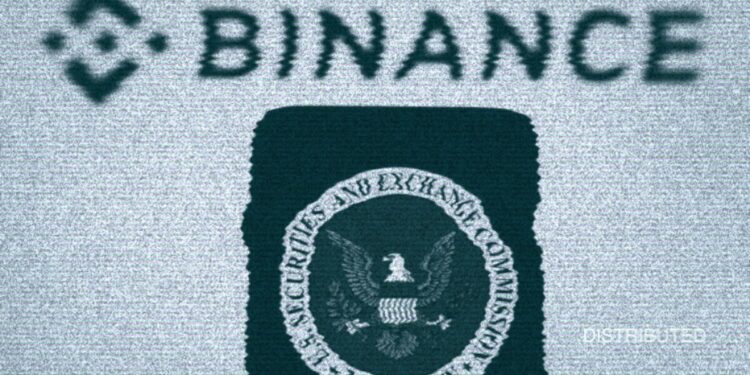- SEC accuses Binance of rule-breaking, inflating volumes, and misleading investors.
- The hearing, postponed due to snow, is rescheduled for Jan. 22, 10 a.m. EST.
Binance, the world’s largest crypto exchange, is gearing up for a high-stakes face-off against the US Securities and Exchange Commission (SEC) in a Washington courtroom, according to a report by Reuters.
The SEC has filed a lawsuit accusing Binance of breaking its rules, inflating trading volumes, diverting funds, and misleading investors, among other allegations. This legal showdown, set to unfold next week, has far-reaching implications for the regulatory future of the entire cryptocurrency sector.
The SEC alleges that Binance, its CEO Changpeng Zhao, and its U.S. arm engaged in deceptive practices, including artificially inflating trading volumes, diverting customer funds, and facilitating trading of unregistered securities.
See Related: FTX Sues Bybit In $900 Million Legal Clash
The SEC Allegations And Binance’s Defense
Binance, however, strongly contests these accusations, seeking the dismissal of the lawsuit. The hearing, initially scheduled for Friday, was delayed due to adverse weather conditions but has now been rescheduled for Monday, January 22, at 10 a.m. EST.
This courtroom drama follows a similar case against Coinbase, another major U.S. crypto exchange, reinforcing the SEC’s scrutiny of crypto platforms. The regulatory authority asserts oversight over crypto tokens, a stance challenged by the crypto sector. Binance.US argues, akin to Coinbase, that the SEC lacks authority in overseeing crypto assets.
BAM Trading, the operator of Binance.US, contends that the SEC overreaches its jurisdiction. Unlike previous settlements with other agencies, Binance is reluctant to settle with the SEC, fearing an acknowledgment that the tokens in question are securities. This legal stance reflects Binance’s belief in having a strong case against the SEC’s alleged overreach.
The SEC’s lawsuit against Binance is part of a broader crackdown on crypto firms. Initially targeting companies issuing digital tokens, the SEC has shifted focus to trading platforms and broker-dealers. While the SEC has secured victories, the recent partial loss in the Ripple case underscores the evolving nature of legal battles in the crypto space.



